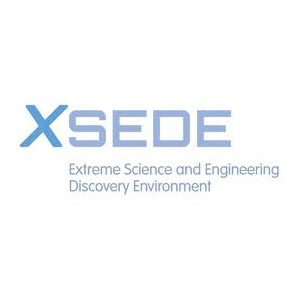 Today XSEDE announced a pilot-phase program meant to give users ready access to HPC expertise. Called ECSS (Extended Collaborative Support Services), ECSS service allows researchers with XSEDE supercomputer allocations to collaborate with HPC experts to enhance their project workflow and hopefully get better results more efficiently.
Today XSEDE announced a pilot-phase program meant to give users ready access to HPC expertise. Called ECSS (Extended Collaborative Support Services), ECSS service allows researchers with XSEDE supercomputer allocations to collaborate with HPC experts to enhance their project workflow and hopefully get better results more efficiently.
The Affiliates program will provide a vehicle for including qualified contributors on projects, expanding the impact of ECSS and also bringing us expertise in new areas,” said ECSS Affiliates program lead and XSEDE co-PI Nancy Wilkins-Diehr. “The program provides opportunities for Affiliates to get involved in cutting edge projects that they may not see at their own institutions, and it gives ECSS a way to bring in additional expertise.”
Affiliates are non-XSEDE staff members who add to the breadth of knowledge in the ECSS program. The first four ECSS Affiliates are:
- Dr. Emre Brookes is an assistant professor in the Department of Biochemistry at the University of Texas Health Science Center at San Antonio, yet his degrees are in computer science and mathematics. His PhD work included developing and implementing new algorithms for analysis of experimental data with a new scalable constrained least squares fitting method and a novel regularization method using genetic algorithms. To provide the scientific community access to these methods, he created the first UltraScan Science Gateway, which has since migrated to Apache Airavata. These methods annually use millions of CPU hours of parallel resources supporting scientific research worldwide. His work concentrates on developing tools for analysis of scientific experimental data. He is the primary developer of the US-SOMO hydrodynamic modeling suite http://somo.uthscsa.edu and is actively involved with the hydrodynamic modeling, small-angle scattering and high performance computational communities. His most recent work, GenApp, focuses on developing an open framework to ease deployment of new and legacy scientific codes.
- Erin Hodgess is an XSEDE Campus Champion and associate professor of Statistics at the University of Houston – Downtown. Hodgess has a bachelor’s degree in economics from the University of Dayton, a master’s degree in economics from the University of Pittsburgh, and a master’s and PhD in statistics from Temple University in Philadelphia. Her areas of research include time series, statistical computing, geostatistics, and high performance computing. She is very excited to join the ECSS Affiliate program and is looking forward to working on many projects.
- Lisa Lowe has 17 years of experience developing computer codes for scientific applications. She specializes in developing, debugging, and optimizing large complex modeling codes designed to run on high performance computing platforms. Her PhD dissertation involved writing a parallel adaptive mesh refinement multigrid PDE solver for the initial value problem of general relativity, a spectral methods integrator for the evolution equations, and a level-set method for finding apparent horizons. Lisa also completed a graduate certificate in environmental assessment in order to change fields and contribute to research benefiting human health and the environment. She is currently an HPC scientific programmer, working as a contractor to the Environmental Protection Agency (EPA). Her projects include modeling hypoxia and eutrophication in coastal ocean systems using hydrodynamic and water quality models, groundwater transport modeling using field line tracing, and risk assessment using Bayesian Markov chain Monte Carlo (MCMC) methods.
- Justin Oelgoetz is an XSEDE Campus Champion and professor of physics and astronomy from Austin Peay State University in Clarksville, Tenn. Justin graduated with a B.S. in chemistry from Florida State University in 1998 and a PhD in chemical physics from Ohio State University in 2006 where he focused on computational atomic spectroscopy; he focused on the same subject from 2006 to 2008 while a postdoc at Los Alamos National Laboratory. Since coming to APSU he has transitioned to computational chemical physics, with an interest in the spectroscopy (X-Ray, UV-VIS, IR, Raman, etc), electronic structure and thermodynamical properties of amorphous solids (glasses) and thin films. Oelgoetz is interested in a wide range of HPC topics and looks forward to working on a broad range projects.



